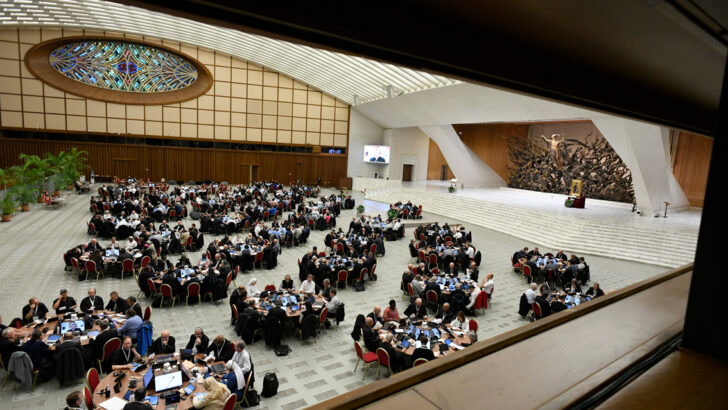Bishop Luis Marín de San Martín is one of the key figures of the Synod on Synodality. Pope Francis appointed him undersecretary of the event, which the Spanish prelate says he has experienced as “an offer of grace” and a call “to personal conversion”.
With the recent meeting in Rome already concluded and the final document issued, the bishop emphasised in a conversation with ACI Prensa, CNA’s Spanish-language news partner, that synodality “is a constitutive dimension of the Church,” so that, despite the fact that the assembly is over, “the process continues”.
The prelate noted that this dimension “is not an achievement” or something that is acquired, but “it exists and has always existed”. He affirmed that “the Church ‘is’ synodal” and that in this stage of “implementation” it is therefore intended to develop this dimension, “to draw out consequences and to make it concrete in the life of the Church”.
For the Augustinian, the final document “is not a recipe book for measures or a code of laws,” but rather “it opens doors, indicates paths to travel, and encourages processes” with “diverse speeds, developments, and concrete expressions, because there are geographical and cultural differences,” although with the same “deposit of faith: one Lord, one faith, one baptism”.
During these four years, he explained, he has tried to “listen to the voice of the Spirit to discern how to be faithful to the Lord and how to live and bear witness to the Gospel in today’s world”.
He also envisages it as an opportunity for profound renewal, which “comes from the experience of the risen Christ” and is also oriented toward the mission in today’s world, taking up cultural diversity and different challenges, “but always in communion”.
As for those who, “with goodwill, feared a change in doctrine, they have already seen that this is not the case. The deposit of faith does not change and cannot change. It’s a matter of going deeper into it, formulating its expression and developing it in the time at hand, as the Church has done throughout its history,” Bishop Marín affirmed.
“The synodal process arises from the action of the Holy Spirit and necessarily requires conversion of the heart. If not, we will understand nothing. The common thread that links the different parts of the document is, in fact, an invitation to conversion: called by the Spirit to conversion; conversion in relationships; conversion in processes; conversion in interconnectivity; conversio n for the mission. For this, it is necessary that love be, truly, the common thread,” he concluded.


 Participants at the assembly of the Synod of Bishops gather for prayer and discussion in the Paul VI Audience Hall at the Vatican. Photo: CNS
Participants at the assembly of the Synod of Bishops gather for prayer and discussion in the Paul VI Audience Hall at the Vatican. Photo: CNS 